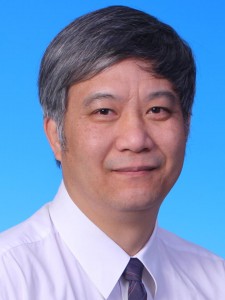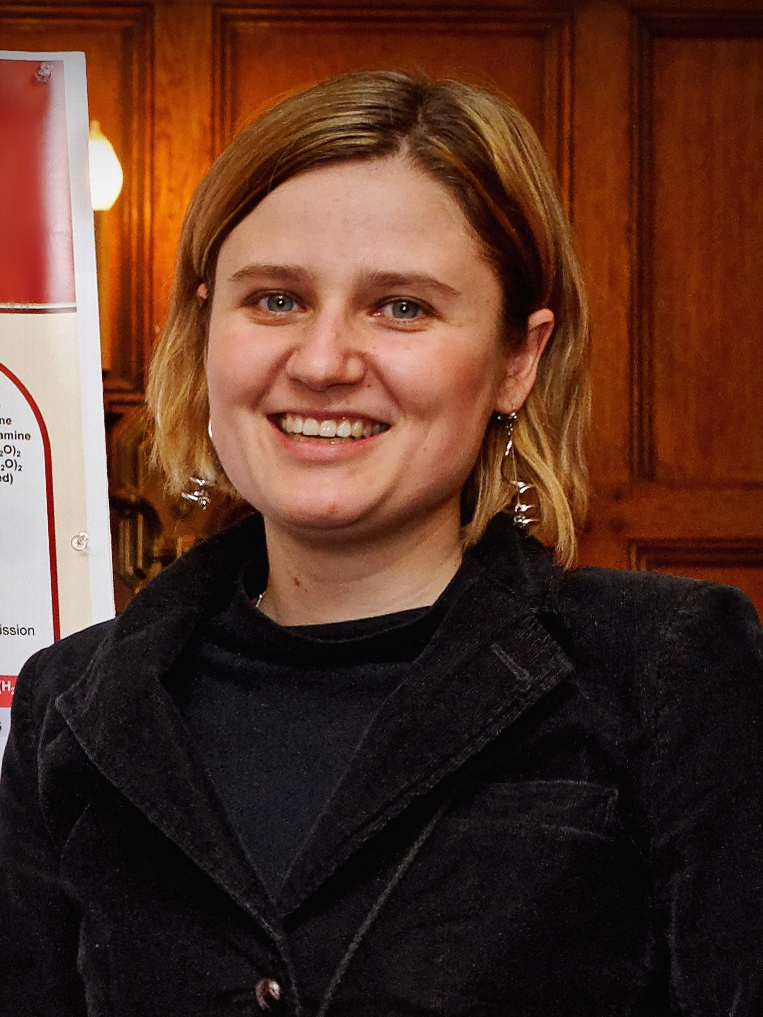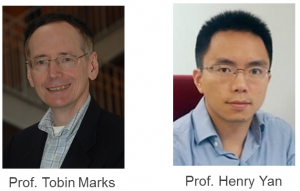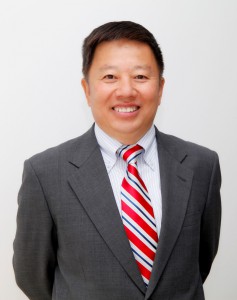Editor-in-Chief Ben Zhong Tang talks about the scientific standard and his expectation to Materials Chemistry Frontiers.
 Ben Zhong Tang is Stephen K. C. Cheong Professor of Science at the Hong Kong University of Science and Technology (HKUST). His research interests include materials science, polymer chemistry and biomedical engineering. He received BS and PhD degrees from South China University of Technology and Kyoto University, respectively, and conducted postdoctoral research at University of Toronto. He joined the Department of Chemistry at HKUST in 1994. He was elected to the Chinese Academy of Sciences and the Royal Society of Chemistry in 2009 and 2013, respectively. He has been listed by Thomson Reuters as a Highly Cited Researcher in two disciplines: Chemistry and Materials Science. He received a Natural Science Award from the Chinese Government and a Senior Research Fellowship from the Croucher Foundation in 2007. Ben Zhong Tang is Stephen K. C. Cheong Professor of Science at the Hong Kong University of Science and Technology (HKUST). His research interests include materials science, polymer chemistry and biomedical engineering. He received BS and PhD degrees from South China University of Technology and Kyoto University, respectively, and conducted postdoctoral research at University of Toronto. He joined the Department of Chemistry at HKUST in 1994. He was elected to the Chinese Academy of Sciences and the Royal Society of Chemistry in 2009 and 2013, respectively. He has been listed by Thomson Reuters as a Highly Cited Researcher in two disciplines: Chemistry and Materials Science. He received a Natural Science Award from the Chinese Government and a Senior Research Fellowship from the Croucher Foundation in 2007. |
Can you tell us about the scope of Materials Chemistry Frontiers?
Materials Chemistry Frontiers (MCF) is committed to report important and highly interdisciplinary studies from across materials science. Scope of the journal focuses on the synthesis and chemistry of exciting new materials, and the development of improved fabrication techniques, as well as characterisation and fundamental research with broad appeal. Significant studies that further the development of organics, inorganics, polymers, nanomaterials, composites, hybrids, etc. are very welcome.
MCF remains as a collaborative journal owned by the Chinese Chemistry Society and the Royal Society of Chemistry and endorsed by the Institute of Chemistry, Chinese Academy of Sciences. The journal will reflect the lead of China and its growing impact in global chemistry community, showcasing the very best research from China, Asia and the rest of the world to an international audience.
What type of content will be featured in Materials Chemistry Frontiers?
MCF publishes research that is of high novelty and significance. Original study will be published in the format of Research Article, which differs from the traditional mix of communication and full paper by introducing more flexibility in terms of article length and structure. Authors are free to shape the nature of their publications according to the needs of the science with free use of colour in all articles.
MCF also publishes Review articles and “Chemistry Frontiers” – a unique type of articles for forward-looking comments and perspectives from high profile researchers.
Who should submit to this new journal and why?
I believe researchers working at the forefront of materials science should submit to MCF. This China-led, international journal will uphold the highest ethical standards, offering world-class customer service to authors, as well as unparalleled global visibility for their research. MCF authors will benefit from rapid publication, free colour, no submission charges and open access publishing options. More importantly, the first two years of content will be freely available to everyone – offering authors maximum exposure for their work.
How will the editorial board and advisory board contribute to Materials Chemistry Frontiers?
I am so pleased to have invited these excellent researchers joining the editorial and advisory boards of MCF. Editorial board members will help set and maintain high scientific criteria for the journal. Associate Editors also take extra duties in handling manuscripts and managing peer-review process.
What is your vision of Materials Chemistry Frontiers?
MCF is aiming at high impact research, therefore, we would be really selective and rigorous in peer-review and only the work meets the standard of the journal will get accepted. My expectation is to wish MCF to become the top level journal in materials science in the next five years.
Is the journal open for submissions now? How soon can we read the first articles?
Yes, MCF is now open for submission. The first issue of articles will be published online in late 2016.
The international advisory board members will further bring intelligence and significant expertise into the journal’s development, helping shape a successful future for MCF.
Has the journal been indexed by any databases? When will it receive the first Journal Impact Factor?
No, MCF is not indexed by any databases now because there has been no content being published yet, but we are well prepared for that. And I believe it is only a matter of time for MCF to be indexed in those databases, like Web of Science, CAS and Scopus. In terms of Impact Factors, normally, the first one should be released in the summer of 2019 by Thomson Reuters.
Do you want to say something to the young researchers who are interested in Materials Chemistry Frontiers?
Whereas it is understandable that young researchers wish to publish in well-established top journals, getting published first is more important in terms of establishing your own research programs. We aim at rapid publication, in an effort to assist career development of junior faculty.
New journal: Materials Chemistry Frontiers – The international, high quality journal for topical and multi-disciplinary research on all aspect of materials chemistry.
Sign up to receive the lates news of Frontiers Journal
Save
Comments Off on Editor-in-Chief Ben Zhong Tang talks about Materials Chemistry Frontiers
















